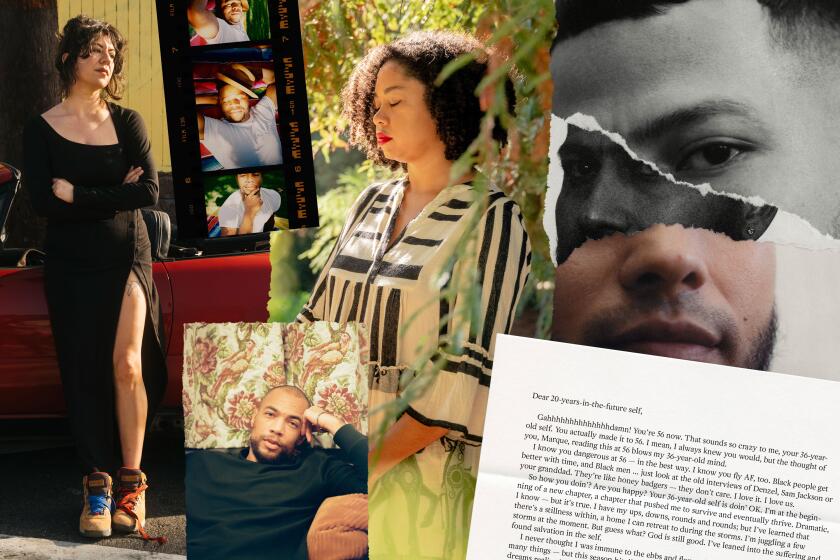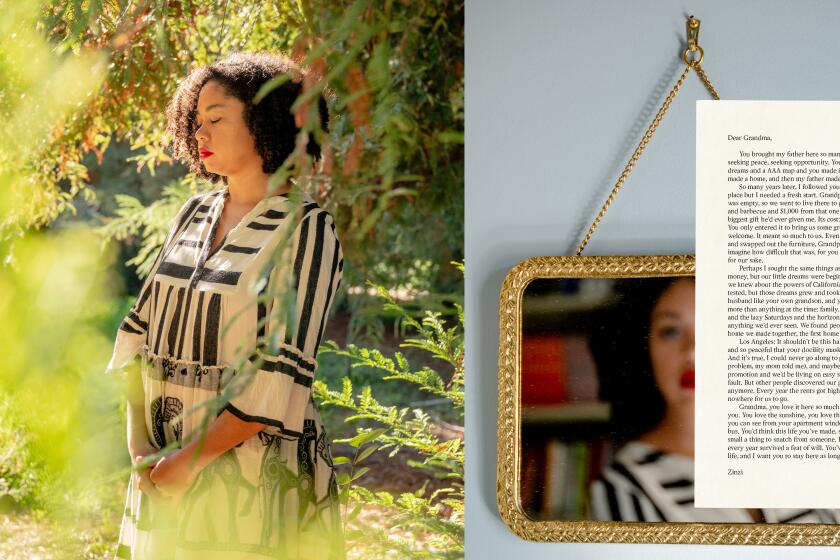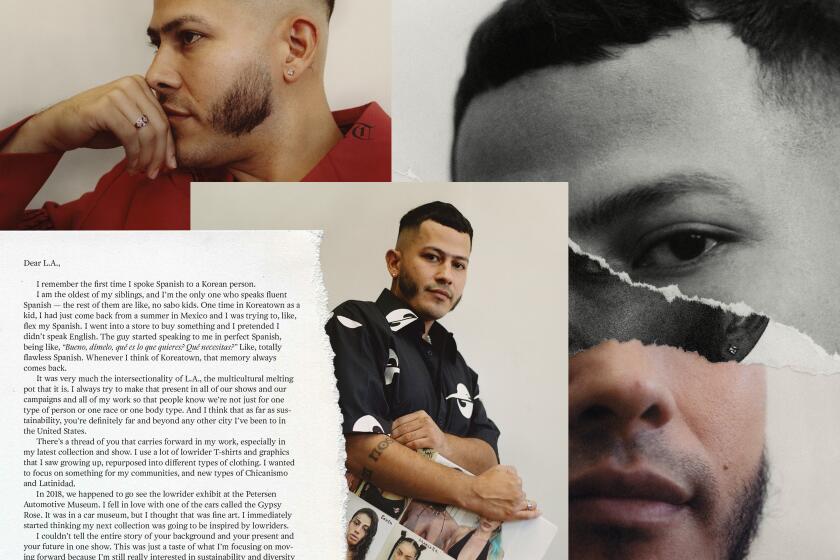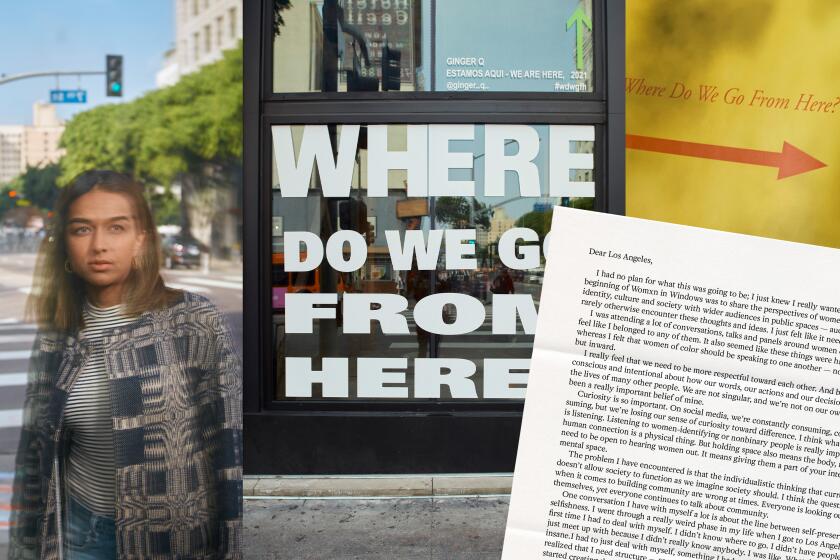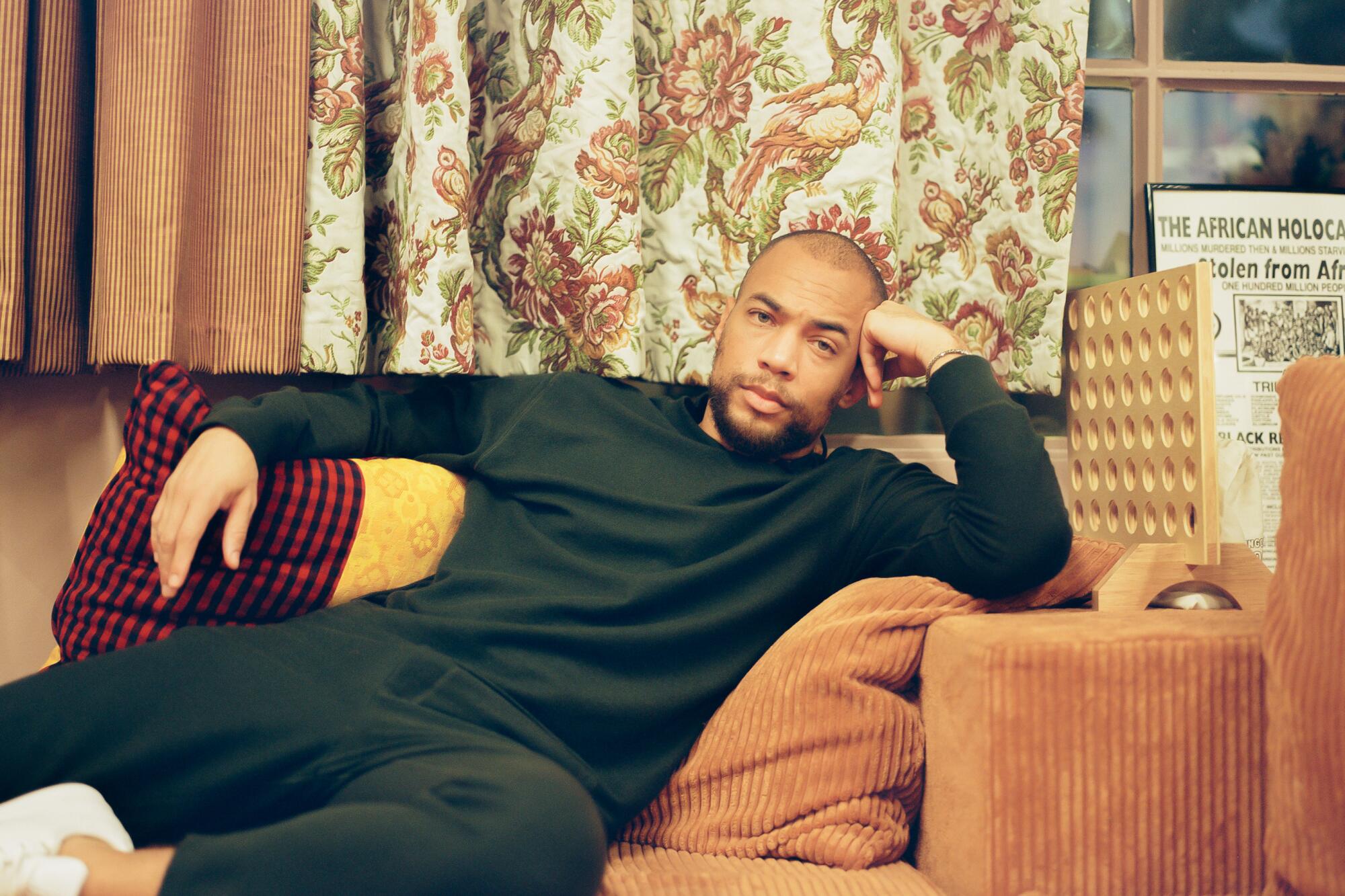
- Share via
This story is part of Image issue 7, “Survival,” a collective vision for the L.A. of our dreams. See the full package here.
Dear 18-year-old Kendrick,
When you first moved to L.A., you‘d just graduated high school and were overwhelmed with trying to make ends meet. You ended up finding different acting classes and were very specific about the type of people you wanted to guide you at that time.
You were blessed to meet this incredible woman, Marilyn Beaubien, who was a producer on “Moesha.” You thought she was gonna put you in movies. She put you in church. Literally: New Dawn Christian Village off Adams. It wasn’t as much about Christianity as, “You’re in L.A., and you need to be grounded in good values.” She introduced you to all these people. You joined the Robey Theatre Company.
You got kicked out of the place you were living in. This white girl was renting out a room in her house and had a rule that you couldn’t speak negative commands to a dog she was training, but the dog jumped on the table and ate your steak. You didn’t have money for food like that. She called the cops.
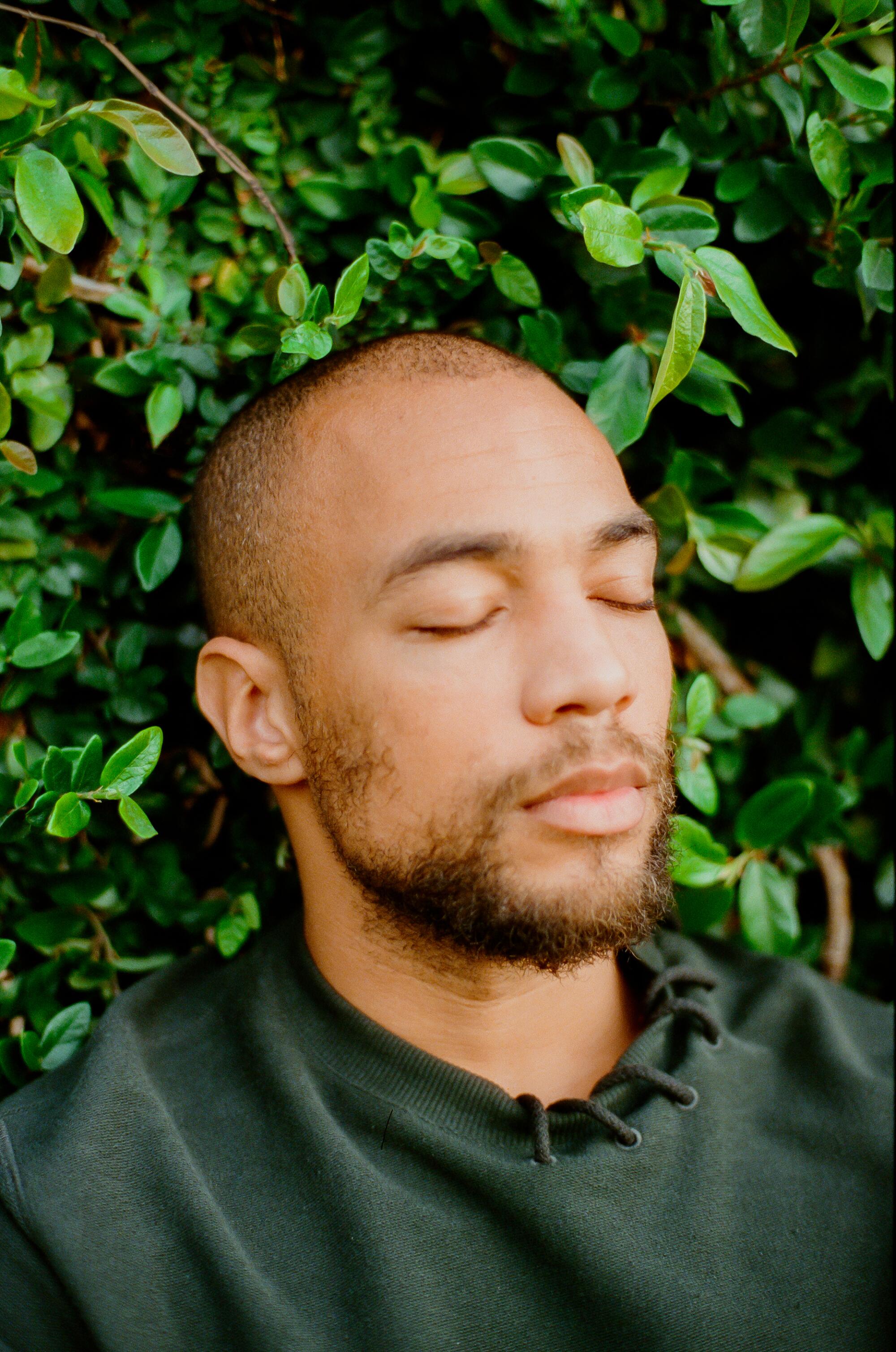
Then, you were living in your car. You met Julissa Prado, who started Rizos Curls, at the Beverly Center where you were working. You went to prom with her. Her parents owned a restaurant, and she used to bring you food because you couldn’t afford to eat. Julissa was being taught by Patrisse Cullors in school. See the degrees of separation? You didn’t meet Patrisse until the Black Lives Matter movement popped off, but you became informed by the social justice lessons she was teaching to Julissa. That’s what was so powerful about it: I can look at all these people and see the interconnectedness.
These letters are part of Image issue 7, “Survival,” a collective vision for the L.A. of our dreams.
You ended up moving in with Mawmaw, whom a lot of people know as your grandma (we look alike, so nobody questions it, but you didn’t know her until you moved here). You lived with her for five years in Ladera Heights. Mawmaw passed last year because of COVID-19. There’s a lot of heartache and such, but just seeing the lack of support when her health started to decline was a lot of my driving force for better care in L.A. Mawmaw had so many connections. Those same people have been around to hold me.
I fight for people as if they are my family, because I see that in everybody I have here. You weren’t able to have family for so many years, since you couldn’t afford to go back home to Houston to visit. It put you in a position where you didn’t have support and safety and community, and you had to build it. You had to build a base. And you built it based on values.
Inside Issue 7: Survival
Writer Rembert Browne investigates the mysterious ailments that just showed up one day
Writer Zinzi Clemmons wants you to be able to stay in the city as long as you want
Artist Muna Malik recycles the emblem of a failed democracy
Journalist Cerise Castle pays tribute to the city’s forgotten site of refuge and devastation
Actor Marque Richardson lets us in on the only 20-year-plan that matters
It’s incredible there was so much alignment. With whom you met, when you met them. What was really cool in finding this tribe is that you were all in L.A., finding your community based on values. You saw the injustices and knew you had a duty to be involved.

I’m sure that all of us felt there was nobody else who cared about what we cared about in our little silos, our journey in pursuing the work to leave this world better than we found it and to free our people and ourselves. We saw that many of our efforts — if not all of our efforts — were counteracted by some system that was rooted in white supremacy, capitalism and all of the values that are antithetical to what we hold dear. That discourages us and makes us feel like, “Ain’t nobody out there.” That’s the work of white supremacy: making us feel that we are by ourselves, that we are divided, that we ain’t ever gonna come out this.
Fast-forward to many years later. Look at what all these people have accomplished and are continuing to do: Julissa’s doing incredible work; success is not just about finance, she does so much social justice with this brand. And Alicia and Opal and Melina — all these folks have changed the world. The organizing infrastructure in L.A. is so powerful that people are being recruited from outside to disrupt the good work we’re doing here — fundraising billions and billions of dollars to disrupt it.
Melina, Patrisse and I have become family. We’ve all spent time in Houston together, and they love it. I spent countless hours last year with BLM L.A., People’s Budget L.A. Coalition and Melina working on a special presentation about how to reimagine safety in L.A. Out of that came a resolution to pass a historic motion in the city council to pull cops out of traffic control. How much would younger me have benefited from that?
More wins: I worked with Patrisse to pass Measure R. Building on that, I was on the steering committee of the Measure J coalition to historically allocate and redirect resources away from police and into housing and mental healthcare infrastructure.
I think the biggest privilege you’ve had, besides male privilege or whatever, is honestly, that you knew your purpose. I know my purpose. I knew it young, and it set me on this course.
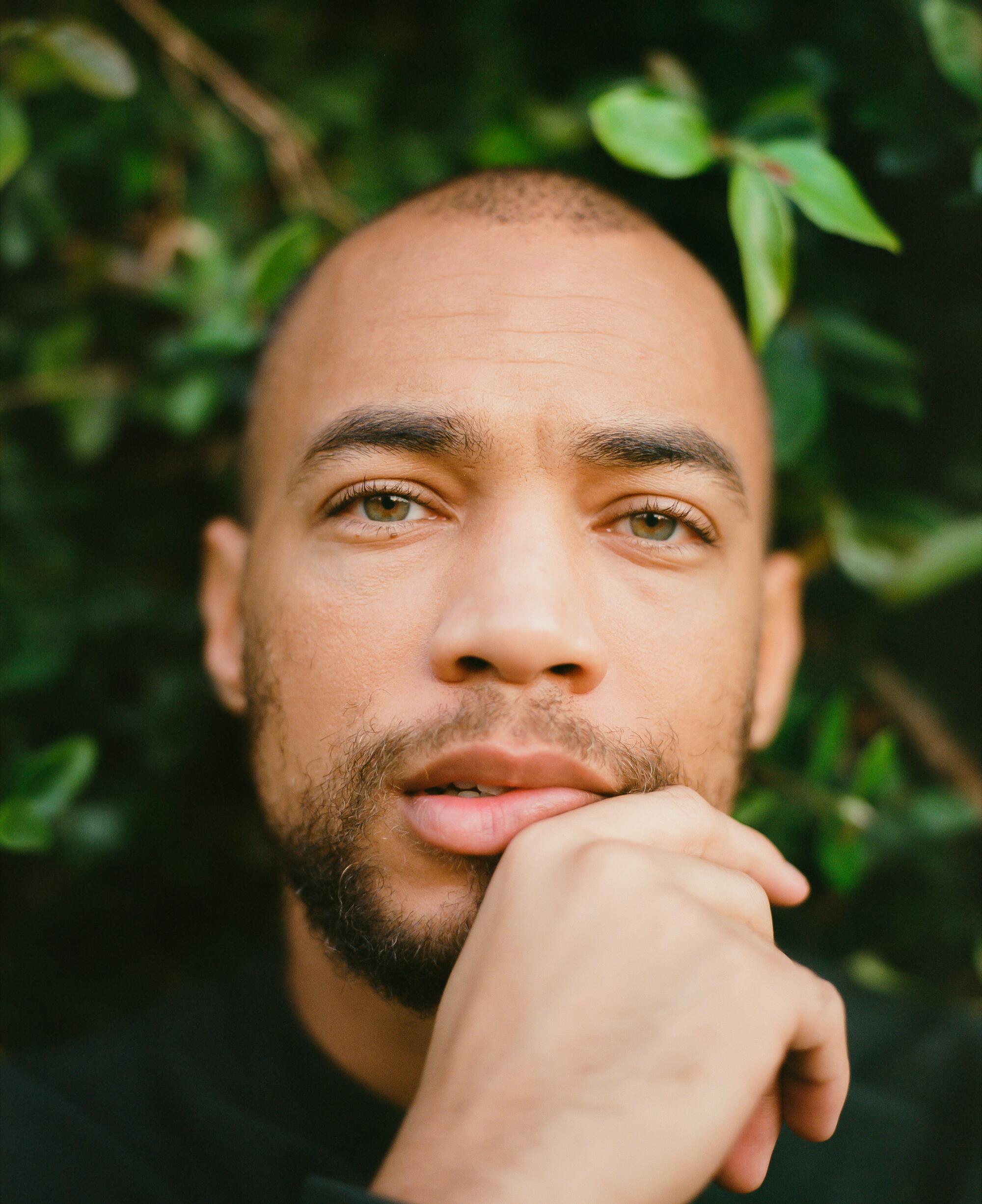
I love you. I hear you in your prayers and our Creator and our ancestors are proud of you. You are going in the right direction. Anytime you need us, we are here to hold you.
In love and power,
Your future self
Kendrick Sampson, an actor and activist, is the co-founder of BLD PWR.
